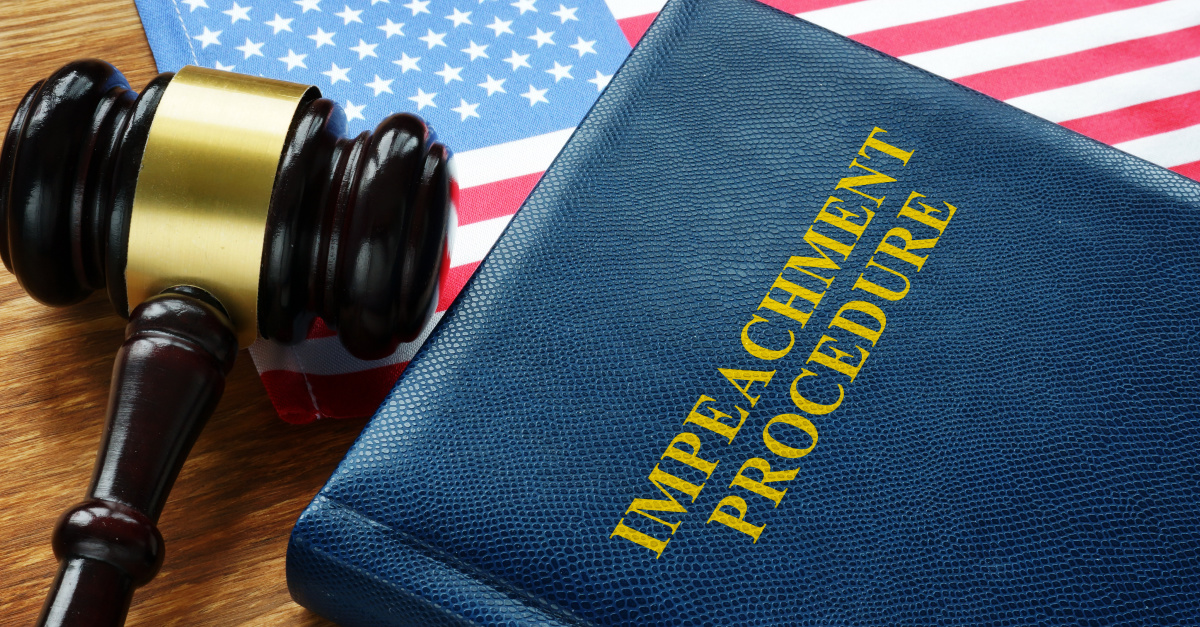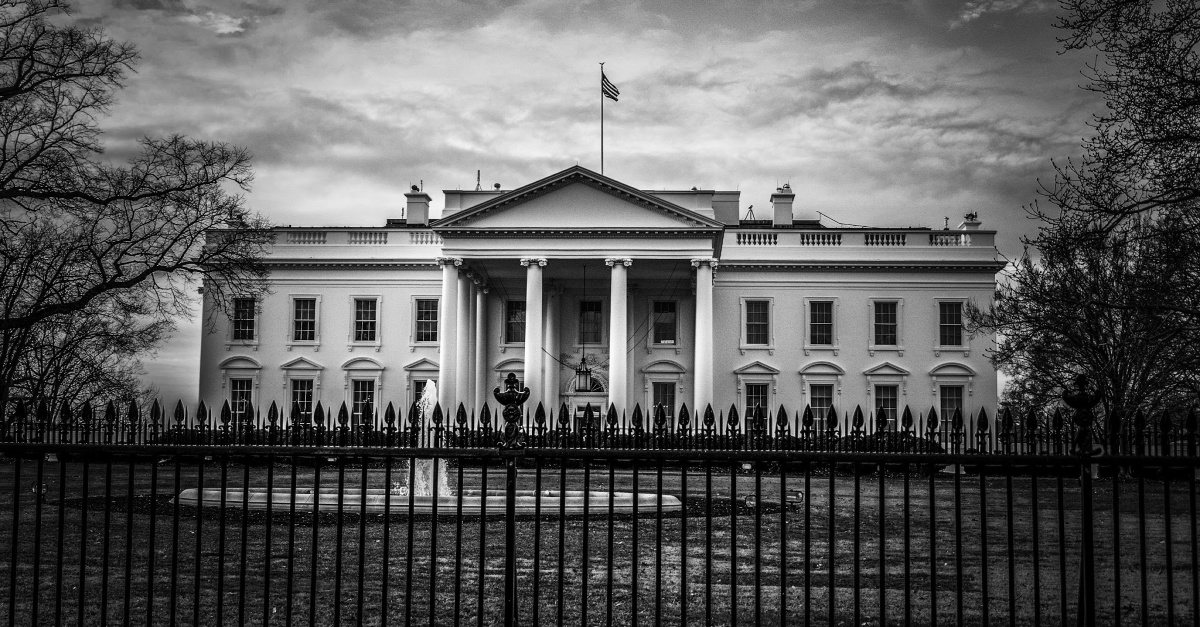5 Things You May Not Know about Impeachment

Americans have only faced the impeachment of a President three times in the 230 years since the passage of the United States Constitution. Because only three of our forty-five Presidents have faced impeachment proceedings, many misconceptions about the purpose and method for impeaching the President abound. Since we live in a self-governing republic, it is important for citizens to understand the history of, the logic behind, and the procedure for the impeachment process.
Here are five things that you may not know about impeachment:
Photo courtesy: ©Getty Images/Designer491
-

1. The Framers of the Constitution Intensely Debated Impeachment
Slide 1 of 5
Early in the summer of 1787, as the framers of the Constitution debated the inclusion of an Executive Branch in the government, the question arose about how the President might be removed from office in the case of gross misconduct. Initially, the delegates agreed that the President could be removed for “conviction of malpractice or neglect of duty.”
Several delegates changed their mind on impeachment later in the summer. Rufus King argued that elections would serve as a sufficient impeachment because the Electoral College could simply remove an unfit President from office at the end of his term. However, James Madison, whose extensive notes on the debate around the framing of the Constitution informs our understanding of what took place, said that Presidents might “pervert” their “administration into a scheme of peculation or oppression. In addition, he reasoned that some Presidents might go so far as to “betray trust to foreign powers.” After a prolonged debate over what would constitute an impeachable offense, they finally compromised on the phrase “high crimes and misdemeanors,” which had been used in both British and colonial American history.
Photo courtesy: ©Public Domain/Howard Chandler Christy
-
![2. Senators Came Within One Vote of Convicting the First Impeached President]()
2. Senators Came Within One Vote of Convicting the First Impeached President
Slide 2 of 5
In the wake of the Civil War and the assassination of President Abraham Lincoln, Radical Republicans in Congress clashed with President Andrew Johnson over many facets of their Reconstruction agenda. Johnson frequently vetoed legislation from the Congress and they often responded by overriding his veto. The rivalry came to a head when Congress passed the Tenure of Office Act, largely to keep Johnson from firing Secretary of War Edwin Stanton.
Johnson became the first President to be impeached after he defied Congress and fired Stanton. Congress responded by bringing articles of impeachment against Johnson, which passed the House. Radical Republicans controlled the Senate and seemed poised to oust Johnson from office until Kansas Republican Edmund Ross voted “not guilty” in Johnson’s Senate trial. In writing about Ross in Profiles in Courage, future President John F. Kennedy said Ross “reasoned that if a president could be forced out of office by insufficient evidence that was based on partisan disagreement, the presidency would then be under the control of whatever congressional faction held sway.” Ross was voted out of office three years later and Kennedy said that his family faced “ostracism and poverty upon their return to Kansas in 1871.”
Photo courtesy: ©Getty Images/Philip Rozenski
-

3. The Constitution Says Very Little about Impeachment
Slide 3 of 5
Article II, Section 4 of the Constitution sets out the standard for impeaching the president. It says, “The President, Vice President and all civil officers of the United States shall be removed from office on impeachment for, and conviction of, treason, bribery, or other high crimes and misdemeanors.” Treason and bribery seem simple enough to understand. They have to do with betraying the country or taking a certain action because of something given in return.
Many believe that the term “high crimes” gives Congressmen and Senators some wiggle room to remove a President from office for a more ambiguous action. However, Harvard Business School historian Nancy Koehn told NPR member station WGBH last year that the Founders had a more specific definition of “high crime in mind.” She said it is something which “might not be a prosecutable offense in a court of law, it can be discerned as something that is against the American nation.” She went on to argue that the wording provided a specific standard for the House of Representatives and the Senate, instead of them doing “whatever the political wind decides.”
The Constitution also lays out the responsibilities of the Legislative Branch in impeachment. The House of Representatives has the power to impeach the President. The Senate has the power to convict the President and remove him from office on the vote of 2/3 of the Senate. Aside from this, the Constitution leaves the House and the Senate room to decide the procedures they would use in case the need arose to impeach the President.
Photo courtesy: ©Getty Images/Artisteer
-
![4. The Framers Made Impeachment Difficult on Purpose]()
4. The Framers Made Impeachment Difficult on Purpose
Slide 4 of 5
Many of the Constitution’s framers feared “pure democracy” and opted for a republican government with three branches who could check and balance each other. From reading The Federalist Papers, you can see that Alexander Hamilton, James Madison, and John Jay especially feared the problems that would arise when people give in to a “party spirit.” Because of this, the framers made impeachment difficult because they did not want the President to be removed from office merely because the opposing party wanted to bring him down and install their own man.
Writing about this tendency in No. 65 of The Federalist Papers, Alexander Hamilton said that impeachment would “seldom fail to agitate the passions of the whole community, and to divide it into parties more or less friendly or inimical to the accused. In many cases it will connect itself with pre-existing factions and will enlist all their animosities, partialities, influence, and interest on one side or the other; and in such cases there will always be the greatest danger that the decision will be regulated more by the comparative strength of the parties, than by the real demonstrations of guilt or innocence.”
Photo courtesy: ©Getty Images/Utah778
-

5. Impeachment Does Not ‘Overturn the Votes of 60 Million People’
Slide 5 of 5
One argument that has come up during the last two impeachment proceedings was the accusation that impeachment was a method of denying the vote of the people. During Bill Clinton’s impeachment, Democratic House members, including current Speaker of the House Nancy Pelosi, signed a letter to the Senate Republican leader saying that removing the President from office “would be tantamount to overturning the will of the American people.” House Republican Council Stephen Castor echoed this sentiment when he appeared before the House Judiciary Committee in December 2019. He told the committee that “By impeaching President Trump, the House would essentially be nullifying the decision” of the 63 million Americans who voted for President Trump.
While this argument may be popular for the party whose leader faces impeachment, it does not hold up to Constitutional evidence. The 435 members of the House of Representatives and the 100 Senators represent the vote of the people in the same way that the President does. If a majority of duly elected Representatives vote to impeach the President and 67 of the 100 Senators vote to convict and remove him from office, the will of the people has still been respected because they have spoken through the voices of their elected leaders.
Scott Slayton writes at “One Degree to Another.”
Photo courtesy: ©Getty Images/Hermosa Wave







Comments are closed.